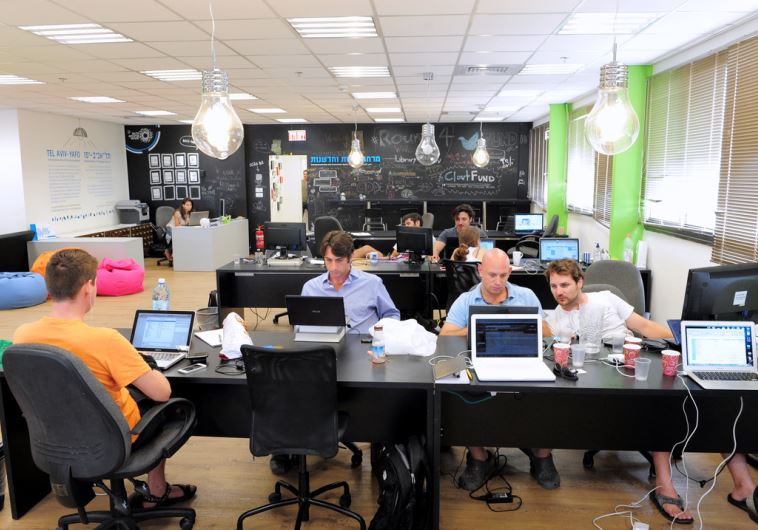Tel Aviv tech scene’s co-working trend attracts start-ups
The 'Post' takes a look at five of the startup city's collaborative, shared office spaces popular with innovators and entrepreneurs.
 Co-working facilities at the "Library" in Tel Aviv(photo credit: TEL-AVIV YAFFO MUNICIPALITY)Updated:
Co-working facilities at the "Library" in Tel Aviv(photo credit: TEL-AVIV YAFFO MUNICIPALITY)Updated: